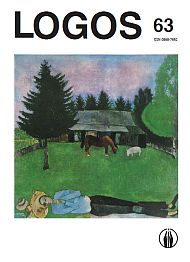Carlo Gustavo Jungo Meninės Kūrybos Interpretacija
The Interpretation of Carl Gustav Jung’s Creative Work
Author(s): Vaida AsakavičiūtėSubject(s): Fine Arts / Performing Arts, Visual Arts, Epistemology, Aesthetics, Philosophy of Mind, Culture and social structure , Cognitive Psychology, Psychoanalysis
Published by: Visuomeninė organizacija »LOGOS«
Keywords: Jung; analytical psychology; art philosophy; archetype; collective unconscious;
Summary/Abstract: In the article peculiar Carl Gustav Jung’s approach towards the artist, his artistic potential, the role of unconsciousness in the process of creative work, the nature of the work of art as well as basic psychoanalytical principles of the interpretation of the work of art, formulated by the founder of “analytical psychology”, are analyzed. The novelty and actuality of Jung’s psychoanalytical rules are revealed; the relation of his concept of creative work with the concepts of the supporters of non-classical philosophy tradition and Sigmund Freud, the initiator of psycho-analysis, is concisely exposed. The main attention is paid to the originality of Jung’s methodological rules of the analysis of art, discussion of the role of collective unconscious in the process of creative work, attitude towards the artistic subject as the theory of a forerunner and as a refresher of archetypes. In the end of the article the author concisely discusses the meaning of art and work of art both to its author and the consumer of art.
Journal: LOGOS - A Journal of Religion, Philosophy, Comparative Cultural Studies and Art
- Issue Year: 2010
- Issue No: 63
- Page Range: 41-50
- Page Count: 10
- Language: Lithuanian

